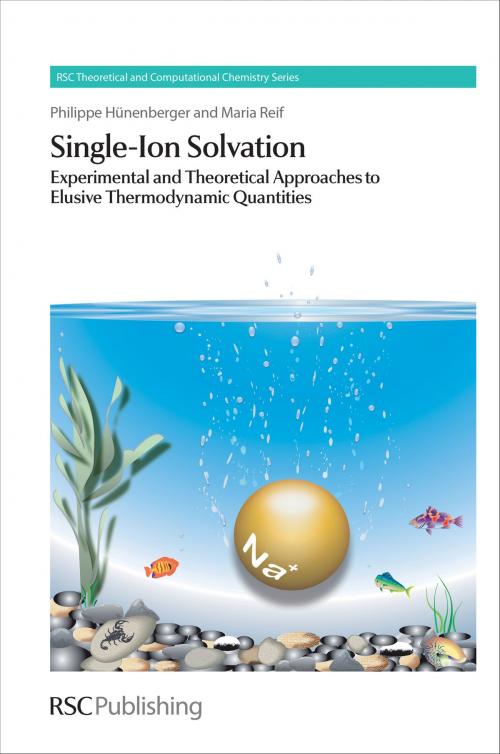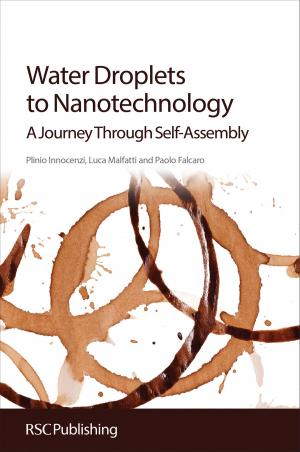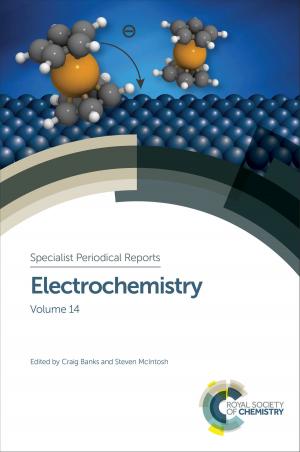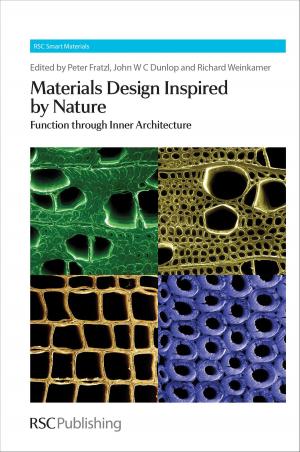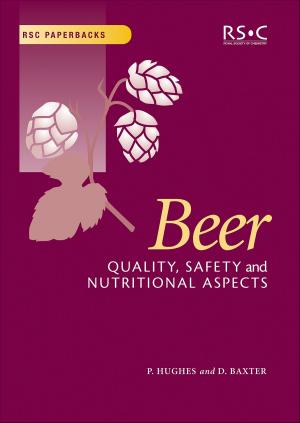Single-Ion Solvation
Experimental and Theoretical Approaches to Elusive Thermodynamic Quantities
Nonfiction, Science & Nature, Science, Chemistry, Physical & Theoretical, General Chemistry| Author: | Philippe Hunenberger, Maria Reif, Walter Thiel, Kenneth D Jordan, Carmay Lim, Jonathan Hirst | ISBN: | 9781782624967 |
| Publisher: | Royal Society of Chemistry | Publication: | October 20, 2015 |
| Imprint: | Royal Society of Chemistry | Language: | English |
| Author: | Philippe Hunenberger, Maria Reif, Walter Thiel, Kenneth D Jordan, Carmay Lim, Jonathan Hirst |
| ISBN: | 9781782624967 |
| Publisher: | Royal Society of Chemistry |
| Publication: | October 20, 2015 |
| Imprint: | Royal Society of Chemistry |
| Language: | English |
Ions are ubiquitous in chemical, technological, ecological and biological processes. Characterizing their role in these processes in the first place requires the evaluation of the thermodynamic parameters associated with the solvation of a given ion. However, due to the constraint of electroneutrality, the involvement of surface effects and the ambiguous connection between microscopic and macroscopic descriptions, the determination of single-ion solvation properties via both experimental and theoretical approaches has turned out to be a very difficult and highly controversial problem. This unique book provides an up-to-date, compact and consistent account of the research field of single-ion solvation thermodynamics that has over one hundred years of history and still remains largely unsolved. By reviewing the various approaches employed to date, establishing the relevant connections between single-ion thermodynamics and electrochemistry, resolving conceptual ambiguities, and giving an exhaustive data compilation (in the context of alkali and halide hydration), this book provides a consistent synthesis, in depth understanding and clarification of a large and sometimes very confusing research field. The book is primarily aimed at researchers (professors, postgraduates, graduates, and industrial researchers) concerned with processes involving ionic solvation properties (these are ubiquitous, eg. in physical/organic/analytical chemistry, electrochemistry, biochemistry, pharmacology, geology, and ecology). Because of the concept definitions and data compilations it contains, it is also a useful reference book to have in a university library. Finally, it may be of general interest to anyone wanting to learn more about ions and solvation. Key features: - discusses both experimental and theoretical approaches, and establishes the connection between them - provides both an account of the past research (covering over one hundred years) and a discussion of current directions (in particular on the theoretical side) - involves a comprehensive reference list of over 2000 citations - employs a very consistent notation (including table of symbols and unambiguous definitions of all introduced quantities) - provides a discussion and clarification of ambiguous concepts (ie. concepts that have not been defined clearly, or have been defined differently by different authors, leading to confusion in past literature) - encompasses an exhaustive data compilation (in the restricted context of alkali and halide hydration), along with recommended values (after critical analysis of this literature data) - is illustrated by a number of synoptic colour figures, that will help the reader to grasp the connections between different concepts in one single picture
Ions are ubiquitous in chemical, technological, ecological and biological processes. Characterizing their role in these processes in the first place requires the evaluation of the thermodynamic parameters associated with the solvation of a given ion. However, due to the constraint of electroneutrality, the involvement of surface effects and the ambiguous connection between microscopic and macroscopic descriptions, the determination of single-ion solvation properties via both experimental and theoretical approaches has turned out to be a very difficult and highly controversial problem. This unique book provides an up-to-date, compact and consistent account of the research field of single-ion solvation thermodynamics that has over one hundred years of history and still remains largely unsolved. By reviewing the various approaches employed to date, establishing the relevant connections between single-ion thermodynamics and electrochemistry, resolving conceptual ambiguities, and giving an exhaustive data compilation (in the context of alkali and halide hydration), this book provides a consistent synthesis, in depth understanding and clarification of a large and sometimes very confusing research field. The book is primarily aimed at researchers (professors, postgraduates, graduates, and industrial researchers) concerned with processes involving ionic solvation properties (these are ubiquitous, eg. in physical/organic/analytical chemistry, electrochemistry, biochemistry, pharmacology, geology, and ecology). Because of the concept definitions and data compilations it contains, it is also a useful reference book to have in a university library. Finally, it may be of general interest to anyone wanting to learn more about ions and solvation. Key features: - discusses both experimental and theoretical approaches, and establishes the connection between them - provides both an account of the past research (covering over one hundred years) and a discussion of current directions (in particular on the theoretical side) - involves a comprehensive reference list of over 2000 citations - employs a very consistent notation (including table of symbols and unambiguous definitions of all introduced quantities) - provides a discussion and clarification of ambiguous concepts (ie. concepts that have not been defined clearly, or have been defined differently by different authors, leading to confusion in past literature) - encompasses an exhaustive data compilation (in the restricted context of alkali and halide hydration), along with recommended values (after critical analysis of this literature data) - is illustrated by a number of synoptic colour figures, that will help the reader to grasp the connections between different concepts in one single picture
